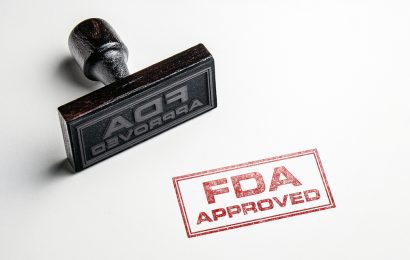Research has shown that people who take the oral Type 2 diabetes medicine metformin may be at risk for developing vitamin B12 deficiency. Now, a new study indicates that supplementation of this vitamin at the recommended levels may not be enough to address the deficiency. Metformin is believed to be the most commonly prescribed diabetes medicine in the world, with over 48 million prescriptions written in 2010 in the United States alone.
Vitamin B12 serves a variety of purposes in the body, including playing a role in metabolism, as well as in the function and development of the brain, nerves, and blood cells. Symptoms of vitamin B12 deficiency include weakness or tiredness, rapid heartbeat, pale skin, easy bruising or bleeding, and stomach upset. If not corrected, B12 deficiency can damage the nerve cells, causing symptoms such as tingling and numbness of fingers or toes, difficulty walking, and depression.
To determine the relationship between metformin use and vitamin B12 deficiency, and to assess whether supplementation with this vitamin could correct deficiencies, researchers looked at data from the National Health and Nutritional Examination Survey (NHANES), which was conducted in the United States between 1999 and 2006. Information on roughly 1,600 adults age 50 and older with Type 2 diabetes and 6,900 adults age 50 and older without Type 2 was included.
The researchers found that B12 deficiency was present in 5.4% of people with diabetes who were taking metformin, compared to 2.4% of people with diabetes not taking metformin and 3.3% of people without diabetes. They further noted that use of supplements containing B12 was not linked with a reduction of B12 deficiency in people with diabetes, compared to a two-thirds reduction in deficiency among people who did not have diabetes. It is currently recommended that people 50 and older consume 2.4 micrograms of vitamin B12 daily from either fortified foods or supplements.
According to study author Godfrey P. Oakley, Jr., MD, MPSM, “It is important to conduct further research to learn how much B12 is needed to correct the deficiency and to determine whether or not raising serum B12 levels improves the clinical picture for persons taking metformin who have low serum B12 concentrations.”
If you think you may have vitamin B12 deficiency, be sure to speak with your doctor before adding any form of supplements to your health-care regimen.
For more information, read the article “Research Claims That Diabetics Should Take More Vitamin B12 Daily” or see the study’s abstract in the journal Diabetes Care. And to learn more about the association between metformin and vitamin B12, see the posts “Metformin and Risk for Vitamin B12 Deficiency” and “Metformin and B12”.




